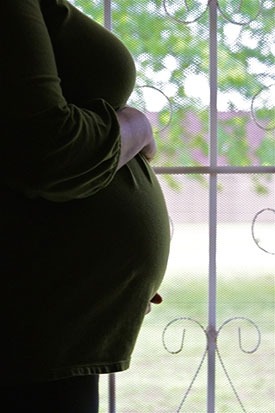
Smoking during pregnancy is linked with a range of poor birth outcomes—including:
- Low birth weight and preterm birth58,59
- Restricted head growth60
- Placental problems61
- Increased risk of still birth62
- Increased risk of miscarriage62,63
Health and developmental consequences among children have also been linked to prenatal smoke exposure, including:
- Poorer lung function, persistent wheezing, and asthma, possibly through DNA methylation64
- Visual difficulties, such as strabismus, refractive errors, and retinopathy65
Unfortunately, smoking by pregnant women is common. In 2014, 8.4 percent of women smoked at any time during pregnancy, with those aged 20 to 24 who were American Indian or Alaska Natives having higher rates, at 13 percent and 18 percent, respectively.66 One fifth of women who smoked during the first 6 months of pregnancy quit by their third trimester. Overall cessation rates were highest for those with the highest educational attainment and private insurance.66 Therefore, there is a clear need to expand smoking cessation treatment to younger women and to those of lower socioeconomic status (see Box: "Smoking Cessation for Pregnant Women").
